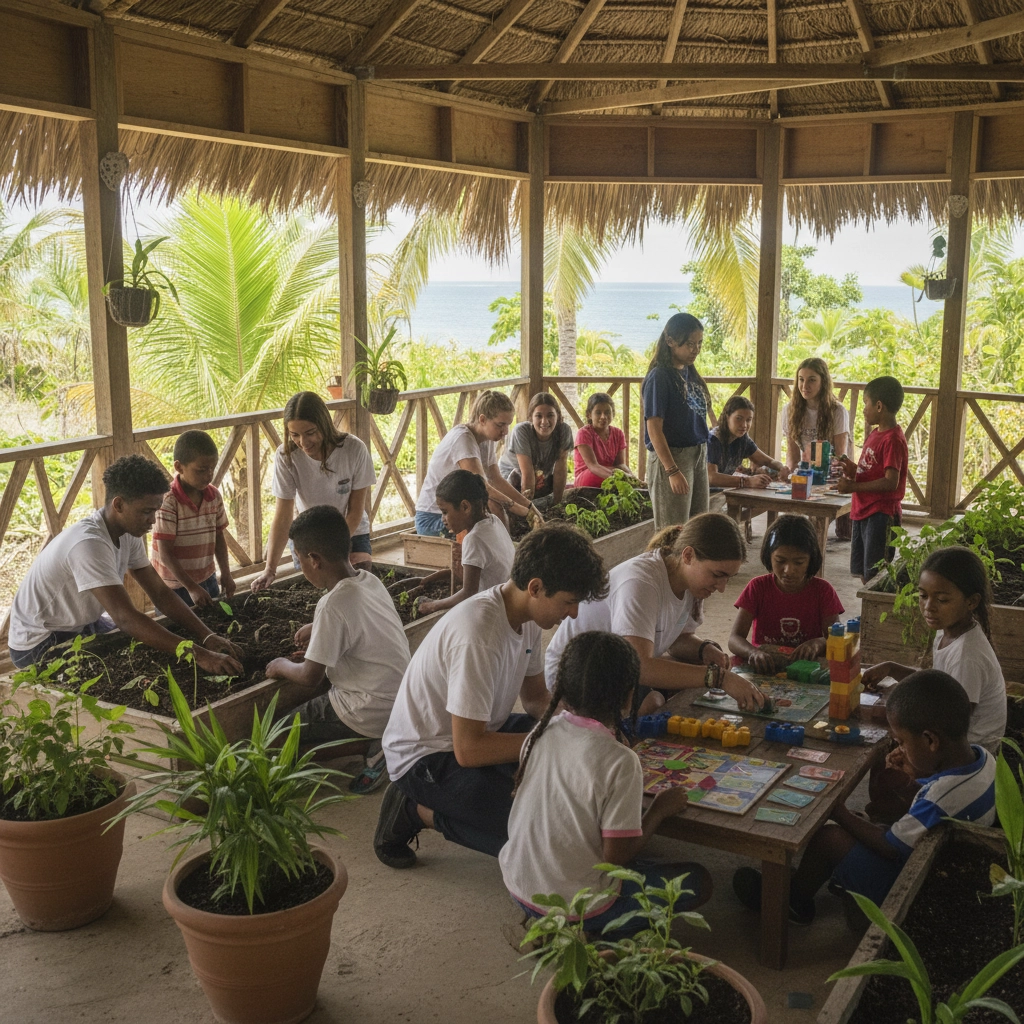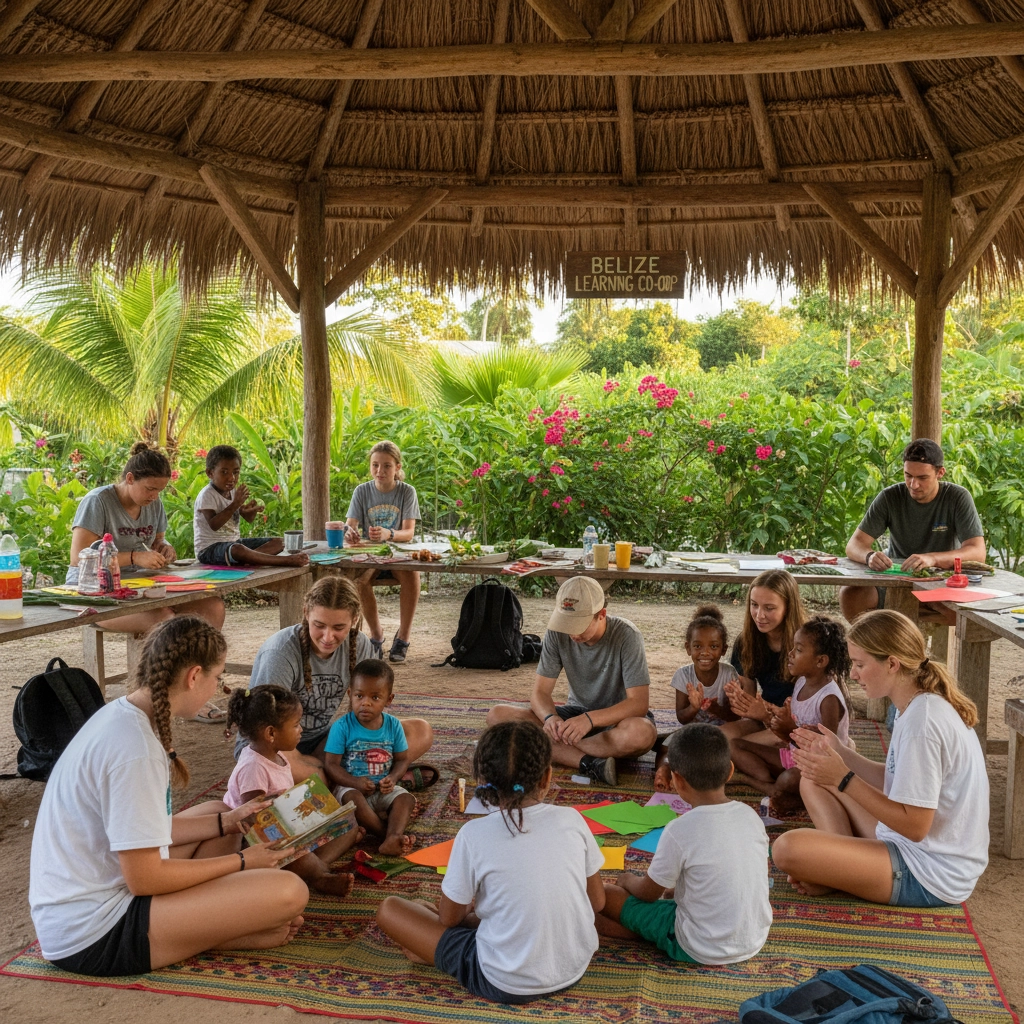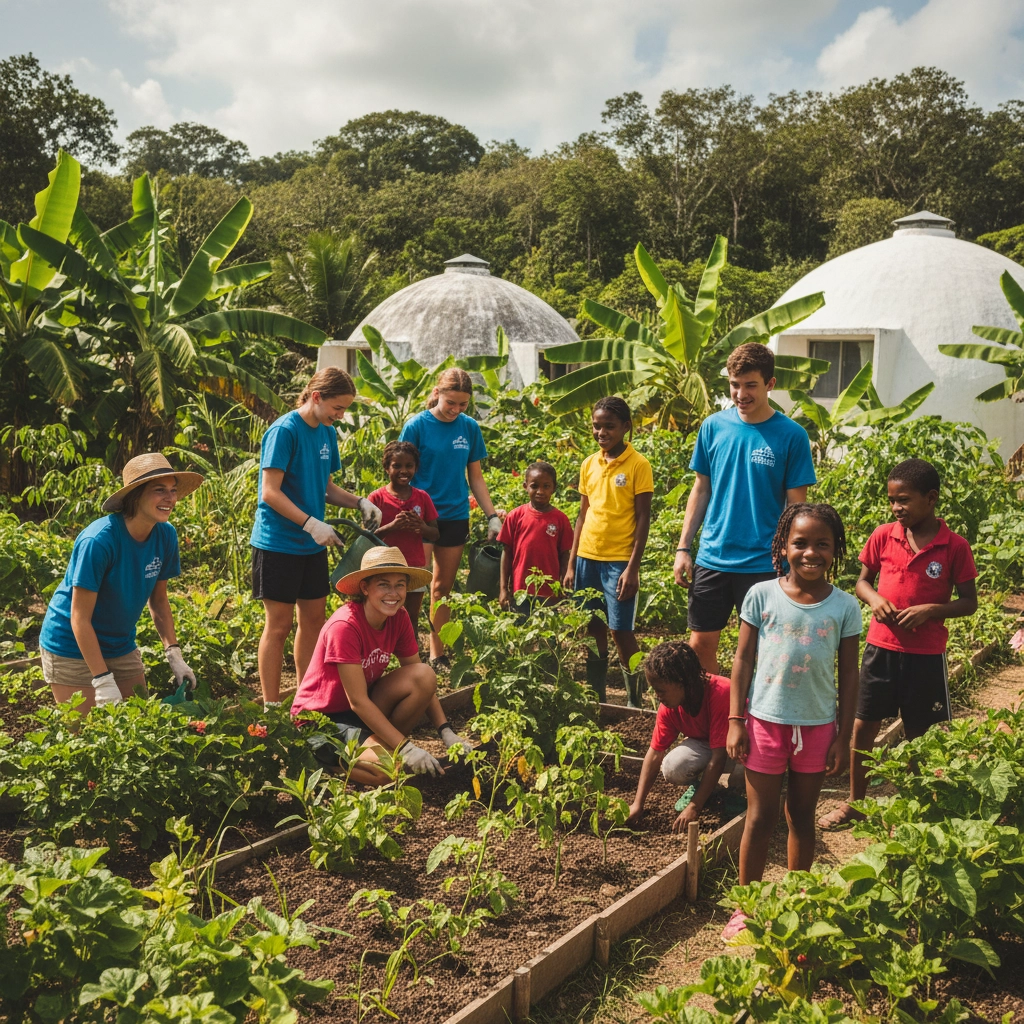Service Learning in Belize: Making a Difference at Liberty Children's Home
- Caleb Mullenix
- Oct 23, 2025
- 5 min read
Integrating meaningful service learning into educational travel programs creates transformative experiences that extend far beyond traditional classroom learning. When students engage in authentic service work, they develop critical life skills, cultural awareness, and a deeper understanding of global citizenship that textbooks alone cannot provide.
Liberty Children's Home in Belize offers educators an exceptional opportunity to combine experiential learning with meaningful community impact. This established organization serves more than forty children who have experienced abuse, abandonment, or neglect, creating an environment where student volunteers can make tangible differences while developing essential character traits and leadership skills.
Understanding the Educational Value of Service at Liberty Children's Home
Service learning at Liberty Children's Home transforms students into active participants in addressing real-world challenges. Unlike passive volunteer experiences, this program requires students to engage directly with complex social issues, developing empathy, problem-solving abilities, and cross-cultural communication skills that prove invaluable throughout their academic and professional careers.
The children's home operates from hurricane-proof dome structures where residents live in small family-style groups with dedicated caregivers. This unique setting provides students with authentic opportunities to observe and participate in community-based solutions to social challenges. Students witness firsthand how institutions can create stability and hope for vulnerable populations while learning about sustainable development practices in international contexts.
Director Agatha Valentine has implemented innovative programs since 2013, including semi-independent living quarters for adolescents and comprehensive life skills training. These initiatives demonstrate to visiting students how thoughtful leadership and systematic approaches can create lasting positive change in communities.

Structured Service Learning Activities That Build Character
Students participating in service at Liberty Children's Home engage in diverse, meaningful activities that develop multiple skill sets simultaneously. Daily responsibilities include agricultural work such as farming and gardening, which teaches students about sustainable food production while contributing to the home's nutritional needs. These hands-on activities connect students to environmental science concepts while demonstrating how communities can work toward food security.
Food preparation and meal service activities require students to collaborate effectively, manage time efficiently, and maintain high standards of cleanliness and organization. Students learn to prepare nutritious meals for large groups while gaining appreciation for the careful planning required to feed growing children consistently.
Educational support represents another crucial component of student service. Volunteers assist with homework supervision, reading programs, and recreational activities that promote academic development among the children. This tutoring experience develops patience, communication skills, and teaching abilities while reinforcing students' own academic knowledge through peer instruction.
The Liberty Education Centre, the home's pre-school program, provides opportunities for students to engage with early childhood development. Working with toddlers and young children requires students to adapt their communication styles, demonstrate creativity in planning age-appropriate activities, and develop nurturing skills that benefit their personal growth.
Developing Servant Leadership Through Authentic Relationships
True servant leadership emerges when students move beyond task completion to focus on relationship building and genuine care for others. At Liberty Children's Home, students serve as mentors, friends, and advocates for children who have experienced significant trauma and instability.
Students learn to approach service with humility and respect, recognizing that meaningful impact requires understanding rather than assumption. They discover that effective service involves listening carefully, adapting to individual needs, and maintaining consistency in their interactions with the children.
The experience teaches students that leadership often means supporting others quietly rather than directing from the front. They observe how the home's caregivers create stability through consistent presence, patient guidance, and unconditional support: modeling servant leadership principles that students can apply in future academic, professional, and personal contexts.

Cross-Cultural Learning and Global Perspective Development
Service at Liberty Children's Home exposes students to Belizean culture, economic realities, and social structures in ways that traditional tourism cannot provide. Students gain authentic insights into how communities address social challenges while learning about cultural values, family structures, and educational systems different from their own.
Working alongside local staff members provides opportunities for meaningful cultural exchange. Students practice Spanish language skills, learn about Belizean history and traditions, and develop appreciation for different approaches to problem-solving and community organization.
These cross-cultural interactions challenge students to examine their own assumptions and privileges while developing greater cultural sensitivity and global awareness. Students return home with expanded worldviews and increased motivation to engage in their own communities.
Integration with Academic Curriculum and Learning Objectives
Effective educational travel programs connect service experiences to specific academic learning objectives. Service at Liberty Children's Home supports curriculum standards across multiple disciplines while providing real-world application opportunities that reinforce classroom learning.
Social studies curricula benefit from students' direct exposure to international development challenges, government systems, and economic conditions. Students observe how non-profit organizations operate, how communities address social problems, and how international partnerships support local initiatives.
Science education connects through agricultural activities, nutrition education, and environmental sustainability practices observed at the home. Students apply scientific concepts while learning about tropical agriculture, water conservation, and sustainable living practices.
Language arts skills develop through communication with children, staff members, and community members. Students practice listening, speaking, reading, and writing in authentic contexts while potentially developing Spanish language proficiency.

Practical Considerations for Educators Planning Service Programs
Successfully implementing service learning at Liberty Children's Home requires careful preparation and clear expectations. Students must arrive ready to work in humid tropical conditions, engage in physical activities, and adapt to unfamiliar living situations.
Preparation should include cultural orientation, service expectations, and safety protocols. Students benefit from understanding the children's backgrounds and the trauma-informed care approaches used at the home. This preparation helps students respond appropriately and supportively during their service activities.
Educators should establish clear learning objectives and reflection protocols to maximize educational value. Daily reflection sessions help students process their experiences, connect service activities to academic concepts, and develop deeper understanding of the complex issues they encounter.
Schedule planning should allow sufficient time for meaningful relationship building. Service programs of shorter duration limit students' ability to develop the trust and connections that create lasting impact for both the children and student volunteers.
Measuring Educational Impact and Program Assessment
Effective service learning programs include systematic assessment of student learning outcomes and program effectiveness. Pre- and post-trip evaluations can measure changes in students' cultural awareness, empathy levels, and understanding of global issues.
Portfolio development allows students to document their experiences, reflect on their learning, and articulate how their service connects to academic and personal goals. Written reflections, photo documentation, and presentation opportunities help students synthesize their experiences while sharing learning with peers and families.
Long-term follow-up assessments can measure lasting impact on students' community engagement, career interests, and continued service participation. Many students report that international service experiences influence their college choices, career directions, and lifelong commitment to service.
Building Sustainable Partnerships for Continued Impact
Successful service learning programs develop ongoing relationships rather than one-time volunteer experiences. Schools can establish multi-year partnerships with Liberty Children's Home that allow for continued support, relationship development, and sustained impact.
Annual return visits enable students to see long-term results of their service while building deeper relationships with children and staff members. These ongoing connections demonstrate to students how sustained commitment creates meaningful change over time.
Fundraising initiatives allow schools to support the home's operational needs throughout the year, extending student impact beyond their physical presence. Students can organize awareness campaigns, fundraising events, and supply drives that maintain their connection to the community they served.
Creating authentic, transformative service learning experiences requires commitment to meaningful engagement rather than superficial volunteer tourism. Liberty Children's Home provides the ideal setting for students to develop servant leadership skills, cultural competency, and global awareness while making tangible differences in children's lives.
Educators seeking to provide students with life-changing educational experiences should consider the profound learning opportunities available through service at Liberty Children's Home. The combination of meaningful work, authentic relationships, and cultural immersion creates educational outcomes that influence students' perspectives, values, and future choices in ways that traditional classroom instruction alone cannot achieve.



Comments